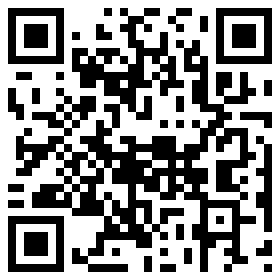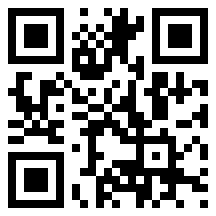Heather made a posting to one of the lists I follow in which she said that she was considering using Facebook with her students, and did anyone have any thoughts on how she might do that. Someone was quick to respond with a posting citing a litany of paedophilia encounters on social networking sites. The posting was perhaps meant as a warning about such sites, but was more likely a case of someone passing on something they had seen lately on the topic, though they didn't know much more about it than that.
I responded that this was exactly the reason WHY educators SHOULD be taking an interest in social networking sites like Facebook. Some commonly cited analogies are that you don’t keep scissors out of your classroom, you teach people not to run with them. What if adults 'blocked' streets and tried to keep children from crossing them instead of teaching them HOW to cross them? Sure, the kids would be safe for a while, if a bit ignorant, but eventually they would encounter streets, and they’d have to work out, probably from emulating a seemingly wiser peer, how to cross them.
Kids are encountering Facebook among other social networking sites. They are not going to revert to postcards and letters at this point. Means of communication, literacies, language, conceptions of technology … all evolve and change and there is no forcing a return to a more comprehensible time no matter how convenient that would be for parents and teachers. In fact, if we older folks want to remain relevant to kids, we have to meet them in their space (My Space?). We need to act as guides there. It is our responsibility as parents and teachers, if we wish to have an impact on how this new generation develops, to make an effort to understand what is going on with social networking, even to the point of joining in, and discoursing with people young and old from an informed perspective, offering insights gained from greater experience in life, but understanding that the world changes and those who prosper change with it.
A good guide has to learn the terrain. To be a guide in Facebook you need to get an account. It’s easy and intuitive, though even I balk at installing Super Walls and accepting Vampire Bites. If you’re fortunate enough to have a fervent user in your family or distributed learning network, you might learn how tagging works with photos, or how professionals are using it to network. I found out about the recent Edublog awards ceremony in Second Life through a Facebook announcement, and Curt Bonk has started a Bonkian YouTubian Researchian network (pretty Bonkian alright - Curt, to me, is a 'seemingly wiser peer'). I’ve been teaching a course on multiliteracies for TESOL and we have been using a book written by Stuart Selber. Through another Facebook contact who discovered that Stuart had a Facebook acct and who added him to her friends list, I added Stuart to mine and he accepted. I sense that my next Multiliteracies course is going to have an interesting dimension to it as we now have the possibility of discussing the concepts with the author of the book via Facebook, can’t wait!
Heather made an important point. Apart from suggesting that she get her students started in Facebook (they most likely already ARE started .. Facebook is now what we have to ask students to log out of instead of MSN, as used to be the case a year or two ago.) … but apart from that, letting them get on with it is exactly the point. If you want to hear something interesting listen to Konrad Glogowski’s K-12 Online presentation at http://k12onlineconference.org/?p=166, or what I was actually thinking of, his conversation with Women of Web 2.0 at http://www.edtechtalk.com/node/2661 where he explains how he did just that in his PhD research, got his students blogging and let them go for a month and then researched what they said about their school work. Guess what, they didn’t say ANYthing about the syllabus. BUT (and his students are 8th graders) they wrote cogently and engagingly about what interested them, and they dialoged with one another, and considered audience and argument to a much greater degree than one would expect from more traditional ways of teaching 8th graders.
Konrad cited the work of Ray Oldenburg who coined the term “Third Place” in the context of being not home and not work, but a place of “broader, more creative interaction" http://en.wikipedia.org/wiki/Third_place (why, when I want to know something, can I invariably find out more about it in Wikipedia? - another social networking site that certain segments of education really need to face up to). Konrad has an interesting blog post on turning classrooms into Third Places: http://www.commun-it.org/community/konradg/weblog/454.html . So what Heather is suggesting then is creating a Third Place that might overlap a little with her class, where students could get away from the ‘work’ place (the ‘second’ place) yet co-mingle the second and third. This is what Konrad did. When he saw that his students were not discoursing on the classroom in their blogs, he started bringing up their blog posts in class, making their postings a part of the discourse of his classroom, as he put it. One of my take-away quotes from listening to that conversation was Konrad’s contention that “writing is a social artifact” – think about it, and then think about Vygotsky and constructivism, and check out what George Siemens says about Connectionism next time you’re on Google.
The lesson for us is that in order to remain relevant to our students, we have to acknowledge their discourse, and absorb it to some extent into our dealings with them. To watch that boat leaving the pier and not make some effort to leap aboard, or reach it, is just going to widen the gap between us and our students.
MEANWHILE - This just in ...
... and regarding my previous posting, feeling experimental, a possible breakthrough in the ongoing saga of achieving long-sought recognition from Technorati that I as a blogger exist. Finally, an email from someone at Technorati apologizing for the long delay in getting back to me but they have made a small adjustment to their system and from now on but not including previous postings (that's fine with me) my blog should start appearing in their listings. No, the trick provided by David Warlick mentioned in the previous post didn't work, but if Technorati has fixed the problem, this posting should. If you find it after a search on one of the tags here, leave me a congratulatory comment!
Subscribe to:
Post Comments (Atom)


 Tag in your DEL.ICIO.US account
Tag in your DEL.ICIO.US account











No comments:
Post a Comment